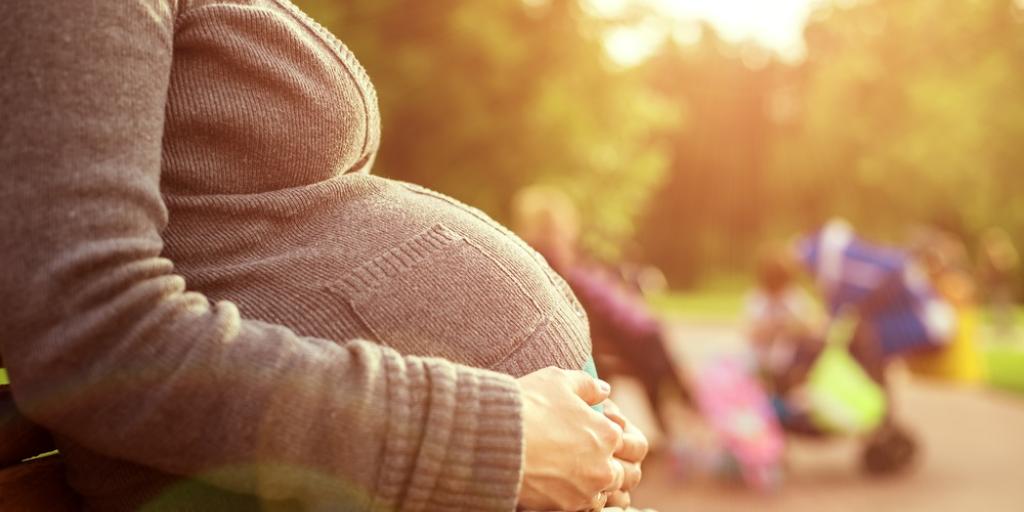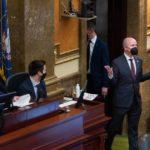June 5, 2020 (Personhood Alliance) — Can a person be convicted of child abuse for injuring a pre-born child? The Colorado Supreme Court has just said no. But in an interesting turn of events, the court’s decision opens the door for the state legislature to clarify Colorado’s child abuse statute and grant pre-born children personhood.
In September 2013, Andre Jones broke into the apartment of Lakeisha Jones, his estranged wife, and shot her in the abdomen. Mrs. Jones, who was 30 weeks pregnant, died from her injuries. Her daughter survived the attack but with severe physical and neurological damage. The child is unable to breathe or swallow on her own and has vision and hearing loss.
Mr. Jones was convicted of several offenses, including 1st degree murder, unlawful termination of a pregnancy, and child abuse resulting in serious bodily injury. He appealed his conviction, stating his 6th Amendment right to a public trial had been violated and that his daughter could not be a victim of child abuse as she was not yet born, and therefore, not legally a person at the time of injury.
On Monday, June 1st, the Colorado Supreme Court ruled 4-3 in Colorado v. Jones that Mr. Jones’ 6th Amendment right had indeed been violated, as his parents were excluded from the courtroom during their grandchildren’s witness testimony. This means Jones will be granted a new trial. However, the court said he cannot be retried on the child abuse charge because the state’s current child abuse statute is ambiguous when it comes to the pre-born.
The child was not a “person”
SUBSCRIBE to LifeSite’s daily headlines
This decision wields a heavy blow. The child in this case has to live with the life-long, debilitating consequences of Jones’ brutality. Under the law, he is not accountable, simply because she was inside her mother at the time of injury.
In determining whether Jones committed child abuse during the shooting, the court’s majority concluded that they “cannot discern the legislature’s intent regarding a defendant’s criminal liability under the child abuse statute for injury he caused to an unborn fetus who is later born alive with the consequences of that injury.” They also declined to apply a state law that allows for prosecution of a person who injures a pre-born child that survives birth and subsequently dies of prenatal injuries.
Why? Because in the Jones case, the little girl lived.
The court referred to People vs. Lage. In that case, a division of the Colorado court of appeals held that the term person, as used in the child abuse statute, “include[s] a fetus who is injured while in the womb, is subsequently born and lived outside the womb, and then died from the injuries sustained.”
In the dissenting opinion, three justices argued that “over 10 years ago, Lage adopted the common law born alive doctrine to permit such prosecutions and since that time, the legislature has never disapproved of Lage.” They asserted the decision sets a precedent in cases of fetal injury which not only result in death, but also disability.
While the majority disagreed, they repeatedly mentioned the vague language of the current law and left it in the hands of the legislature to clarify its meaning. The justices stated:
“The child abuse statute defines ‘child’ as ‘a person under the age of sixteen years.’ The statute does not define ‘person.’”
They go on to say:
“We cannot infer from this definition, however, that the child abuse statute similarly applies only to harm caused to those who are already born at the time of the injurious conduct.”
A door opens for personhood
This admission opens the door for Colorado legislators to clarify the terms child and person in the child abuse statute and include pre-born children. Whether this will happen or not remains to be seen, but it’s an opening nonetheless.
Rosalinda Lozano, president of Personhood Colorado, explains.
“Too often, the pre-born are deliberately excluded from being defined as persons or children, because to include them is seen as a threat to the so-called ‘right’ to abortion. This prioritizes ‘choice’ over human beings — persons who deserve equal protection under the law.
Instead, pro-life efforts tend to focus on ‘pain-capable’ or ‘born alive’ bills that take an incremental approach, outlawing particularly brutal procedures, or making abortion illegal after a certain gestational age. Despite the best intentions, most do not realize that these efforts do little more than further enshrine abortion in our laws.”
It’s time to take a different approach.
It’s time to acknowledge what we all intrinsically know — that the child in the womb is just as much a person as you and I.
The little girl in this case is now 7 years old. She lacks muscle control. She has a surgically implanted tube that allows her to eat. She requires frequent hospital visits. How many of us could look her in the eye and honestly believe the man who did this to her should bear no consequence? That she was somehow not a person when it happened? That her suffering does not matter?
We must urge our state legislators to protect all children — born and pre-born by protecting them equally as persons under the law.
It does matter.
Deborah Stilt is the social media coordinator for the Personhood Alliance and has been active in pro-life media for several years. But most importantly, she’s a California mom who is fighting against the lies of the culture and for the protection of every human being without exception.
Published with permission from the Personhood Alliance.
This content was originally published here.





